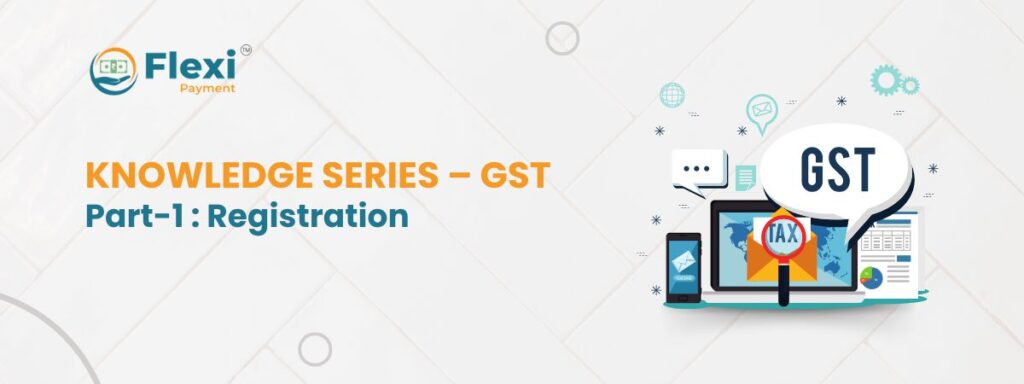What is GST Registration?
• Under the Goods and Services Tax (GST) regime, businesses surpassing the threshold limit of Rs.40 lakh, Rs.20 lakh, or Rs.10 lakh, as applicable, are required to register as normal taxable entities. This process is termed as GST registration.
• For certain enterprises, GST registration is obligatory. Conducting business without proper GST registration constitutes a violation under GST regulations, and is subject to significant penalties.
• Normally, GST registration is finalized within 2-6 working days.
Who is required to obtain GST registration?
• Individuals previously registered under the Pre-GST law (such as Excise, VAT, Service Tax, etc.)
• Businesses surpassing the specified turnover thresholds of Rs.40 lakh, Rs.20 lakh, or Rs.10 lakh, as applicable
• Agents acting on behalf of a supplier and Input Service Distributors
• Casual taxable persons or Non-Resident taxable persons
• Individuals supplying through an e-commerce aggregator
• Individuals liable to pay tax under the reverse charge mechanism
• Every e-commerce aggregator
• Individuals providing online information and database access or retrieval services from a location outside India to a person within India, excluding a registered taxable person
GST Registration Procedure
• GST registration is attainable through the GST portal.
• To initiate the process, individuals need to submit Form REG-01 on the GST portal
• Documentation Needed for GST Registration
Aadhaar Card
PAN Card of the Applicant
Evidence of business registration or Incorporation certificate
Identification and Address proof of Promoters/Directors with Photographs
Address proof of the business premises
Cancelled cheque / Bank Account statement
Digital Signature
Letter of Authorization or Board Resolution for Authorized Signatory
• The adept GST professionals at FlexiPayment offer assistance in understanding the applicability and obligations pertaining to GST for your business, ensuring seamless registration under the GST regime (this is chargeable service)
Penalty for not obtaining GST registration
• An offender not paying tax or making short payments (genuine errors) has to pay a penalty of 10% of the tax amount due subject to a minimum of Rs.10,000.
• The penalty will at 100% of the tax amount due when the offender has deliberately evaded paying taxes
GST Registration Frequently Asked Questions
Is GST registration mandatory?
Yes, GST registration is mandatory once your turnover surpasses the specified threshold limits.
Can I apply for multiple GST registrations?
If a business operates in multiple states, it must obtain separate GST registrations for each state. For instance, if a clothing retailer operates stores in both Maharashtra and Gujarat, they would need separate GST registrations for each state.
Can I obtain multiple GST registrations within a state?
Yes, a business can apply for multiple GST registrations within a state. The previous requirement of separate registrations for different business verticals within a state has been eliminated for ease of business.
Who can register for the composition scheme under GST?
Small taxpayers seeking reduced compliance burdens and lower tax rates under GST can choose the Composition scheme.
Traders with an aggregate turnover below Rs 1.5 crore are eligible for the Composition scheme. However, in North-Eastern states and Himachal Pradesh, the current limit stands at Rs.75 lakh.
Additionally, the government has extended the Composition scheme to service providers with an aggregate turnover of up to Rs.50 lakhs.
What turnover is considered for the GST registration threshold limit?
Aggregate turnover should be considered for calculating the turnover threshold. Aggregate turnover encompasses the total value of all taxable supplies, excluding inward supplies liable to reverse charge, while including exempt supplies, exports of goods or services, inter-state supplies by entities with the same PAN, to be computed nationwide. Notably, CGST, SGST, UTGST, IGST, and cess should be excluded when computing aggregate turnover.
What are the benefits of registering under GST?
• Simplified tax procedures and compliances
• Access to input tax credit
• Interstate business without restrictions
What are the benefits of registering under GST – For Composition dealers?
• Limited compliance
• Reduced tax liability, and
• Minimal impact on working capital.
What are the benefits of registering under GST – For voluntary registrants (Below Rs.40 lakhs*)?
• Input tax credit
• Interstate business without restrictions
• Registration on online platforms, and
• Competitive advantages
When do I have to register under GST?
GST registration must be obtained within 30 days from the date of becoming liable for registration.
What is a GST Identification Number (GSTIN)?
Each taxpayer is allocated a 15-digit GSTIN, based on their PAN, for every state of operation. It is acquired during the GST registration process, following verification and approval by the GST officer.
What if my GST registration application is rejected?
If an application is rejected, the applicant has the option to respond to the rejection letter. Alternatively, they can wait for a final rejection, which typically takes around 10 days, before reapplying.
Is a PAN card required for GST registration?
Yes, a PAN card is mandatory for GST registration. If an applicant doesn’t have a PAN card, they must obtain one before applying for GST registration, except in the case of TDS registration under GST, which allows registration with a TAN.
What happens after obtaining GST registration?
After successful registration, the taxpayer receives a GST registration certificate (Form GST REG-06) and a valid GSTIN. They become eligible to claim input tax credit, issue GST-compliant invoices, and must commence filing GST returns monthly or quarterly, as applicable.

